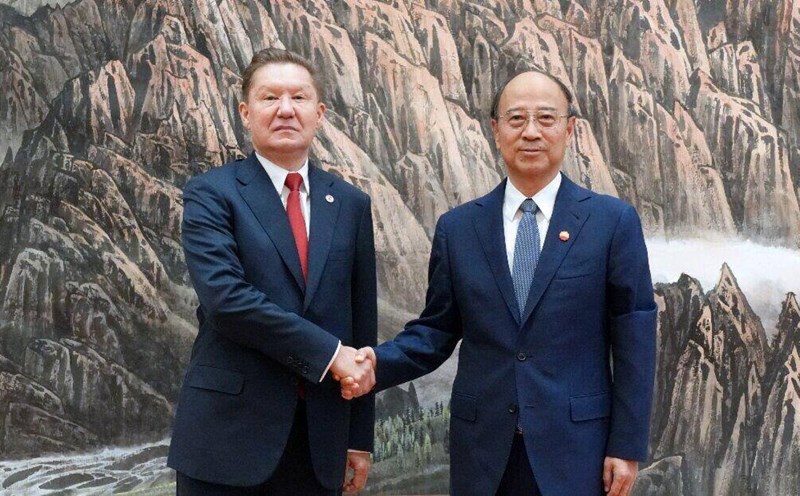The European Commission's plan to completely end Russian gas imports from January 1, 2028, which are facing barriers from the EU's new industrial structure.
German Chancellor Friedrich Merz has recently called on the Slovakian government to stop delaying the 18th package of sanctions against Russia. In response, Slovakian Prime Minister Robert Fico noted that Slovakia has 900 German enterprises in operation. The German government should also ensure that Slovakia has enough gas at a reasonable price after January 1, 2028. Mr. Fico also proposed direct talks with the German Chancellor.
Since 2021, gas prices in Europe have increased sharply. While EU countries have stopped importing Russian gas, Hungary and Slovakia have been granted an extension to continue purchasing gas from Russia's Gazprom until the end of 2027, helping the two countries maintain gas prices at the EU's lowest level.
Low energy prices have fueled a new wave of investment from Western businesses in Central and Eastern Europe. Together with Poland and the Czech Republic, Hungary and Slovakia will benefit the most from Germany's industrial restructuring, aiming for sustainability, innovation and reducing dependence on global risks.
Hungary and Slovakia have long cooperated with German companies, but after 2021, investment capital will no longer be simply to open assembly plants, but will shift to building high-tech, energy-saving industrial platforms and future orientation. German industrial and automobile "giants" such as Audi, Mercedes-Benz, Bosch, ZF, Schaeffler, Continental... are all implementing major projects in these two countries related to electric vehicles, localizing supply chains and digitalizing production.
For example, in Gera (Hungary), Audi invested 300 million euros to build the largest electric motor manufacturing center in Europe; Mercedes-Benz also expanded its factory in Kecskemet with an investment of 1 billion euros. In Slovakia, Volkswagen poured 1 billion euros into a comprehensive electric vehicle production line.
On the one hand, Hungary and Slovakia are close to Germany. On the other hand, the governments of the two countries have actively supported German enterprises through tax incentives, subsidies and administrative priorities. Both countries also apply preferential electricity price lists for large-consumption enterprises, with a reduction of only 5-10%, which is enough to create a big difference for the energy-consuming industry.
According to the German government, there are currently about 3,000 German enterprises operating in Hungary, creating about 300,000 jobs for the country.
In addition, the two Eastern European countries also enjoy cheap electricity thanks to energy cooperation with Russia. In Hungary and Slovakia, the majority of electricity is provided by nuclear power plants, accounting for 45% and 63% of total electricity output, respectively. The nuclear fuel is supplied by Russian company TVEL. Meanwhile, gas-fired power accounts for 20% in Hungary and 15% in Slovakia.
In recent years, Hungary and Slovakia have become key linkages in Germany's re-industrial chain, helping the German industry adapt to the new energy and technology context. However, everything could change if the EU forces these two countries to completely cut off Russian energy sources. Slovakia's state-owned energy company SPP alone estimates that the damage caused by stopping purchasing Russian gas from Gazprom could amount to 287-828 million euros per year.











